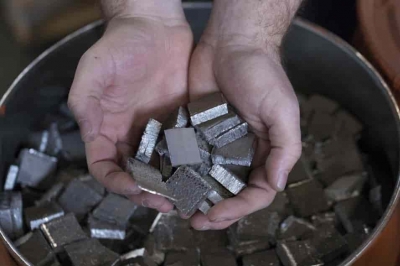The expansion of the BRICS bloc, could have a major unforeseen consequence– boosting critical mineral security. And India, a key BRICS player, may benefit out of that.
Though at present China leads the world’s production in critical and rare earth minerals, countries including Egypt, Ethiopia and Argentina are sitting on piles of reserves as well. South Africa and Russia, too, are rich in minerals and rare earth. With the demand for critical minerals expected to surge in the near future opportunities will open up for mineral rich nations.
Argentina, Egypt, Ethiopia, Iran UAE and Saudi Arabia are the six countries that will officially join the BRICS bloc next year.
About 30 per cent of the world’s critical mineral reserves are found in Africa. As the global demand for minerals and metals rise, Africa and other countries which have huge reserves need to prepare to increase supplies as well.
“The inclusion of these six nations will have far reaching implications as they are rich in energy and critical minerals. The expansion may open up a huge opportunity for member nations to leverage on each other’s strengths,” an industry watcher said.
For India, mineral security will be key as it aims to touch the $5 trillion economy. The Centre’s push for electric vehicles (EVs) and batteries as part of the exercise to transition to clean energy and the production linked Incentive (PLI) scheme will lead to a surge in demand for critical minerals.
And India, which is now positioning itself as a credible global manufacturing hub, will need to ensure a steady supply chain for critical minerals and rare earth elements.
Prime Minister Narendra Modi while speaking at the B20 summit noted that protectionism of critical materials and rare-earth elements could result in a new form of colonialism. Recently, India released a list of 30 critical minerals that it identified as essential. While for the US the list comprises 50 minerals, the EU has 34 and Australia has 26.
Lithium, cobalt, copper, gallium, nickel, tin, silicon, phosphorous, potash are among the 30 listed critical minerals for India.
The Diplomat said that the political objective behind this unveiling is to re-emphasise the resiliency of the critical mineral supply chain, which is key to India’s economic and security needs.
Currently, India is import dependent for critical minerals. Even as the Geological Survey of India indicated that India has substantial lithium reserves in Jammu and Kashmir and Rajasthan, attaining self sufficiency in mineral production will take time.
India is already looking at Africa and Australia for sourcing minerals and rare earth elements. South American countries including Argentina, Bolivia and Chile have untapped potential as well.
Argentina alone accounts for 21 per cent of the world’s lithium reserves. While at present, the country has just two mines which are in operation, a host of companies are now looking to start mining in the South American nation, which can become a leading supplier of lithium.
According to a Takhshashila research “India must not only secure its national interests in the rare earth sector but also take advantage of the current geopolitical and trade situation to become a major player globally.” However, this will require liberalising the mining of rare earth, increasing extraction, production, and processing capacity, and building a high-value supply chain including in the renewables and electronics sector, it added.
But with the emerging economies and Global South coming together in Johannesburg, the time may have arrived to form a BRICS critical mineral alliance.
Also read: India becomes a major investor in Australia’s critical minerals sector




















